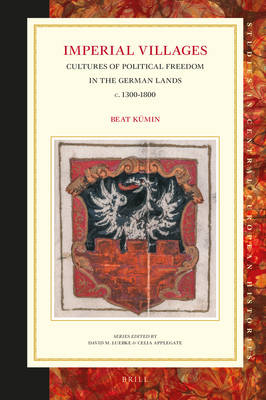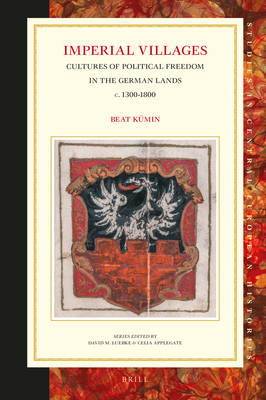
Bedankt voor het vertrouwen het afgelopen jaar! Om jou te bedanken bieden we GRATIS verzending (in België) aan op alles gedurende de hele maand januari.
- Afhalen na 1 uur in een winkel met voorraad
- In januari gratis thuislevering in België
- Ruim aanbod met 7 miljoen producten
Bedankt voor het vertrouwen het afgelopen jaar! Om jou te bedanken bieden we GRATIS verzending (in België) aan op alles gedurende de hele maand januari.
- Afhalen na 1 uur in een winkel met voorraad
- In januari gratis thuislevering in België
- Ruim aanbod met 7 miljoen producten
Zoeken
€ 229,45
+ 458 punten
Omschrijving
Hundreds of rural communities tasted political freedom in the Holy Roman Empire. For shorter or longer periods, villagers managed local affairs without subjection to territorial overlords. In this first book-length study, Beat Kümin focuses on the five case studies of Gochsheim and Sennfeld (in present-day Bavaria), Sulzbach and Soden (Hesse) and Gersau (Switzerland). Adopting a comparative perspective across the late medieval and early modern periods, the analysis of multiple sources reveals distinct extents of rural self-government, the forging of communalized confessions and an enduring attachment to the empire. Negotiating inner tensions as well as mounting centralization pressures, Reichsdörfer provide privileged insights into rural micro-political cultures while their stories resonate with resurgent desires for greater local autonomy in Europe today.
Specificaties
Betrokkenen
- Auteur(s):
- Uitgeverij:
Inhoud
- Aantal bladzijden:
- 292
- Taal:
- Engels
- Reeks:
- Reeksnummer:
- nr. 65
Eigenschappen
- Productcode (EAN):
- 9789004345065
- Verschijningsdatum:
- 9/05/2019
- Uitvoering:
- Hardcover
- Formaat:
- Genaaid
- Afmetingen:
- 160 mm x 231 mm
- Gewicht:
- 589 g

Alleen bij Standaard Boekhandel
+ 458 punten op je klantenkaart van Standaard Boekhandel
Beoordelingen
We publiceren alleen reviews die voldoen aan de voorwaarden voor reviews. Bekijk onze voorwaarden voor reviews.









